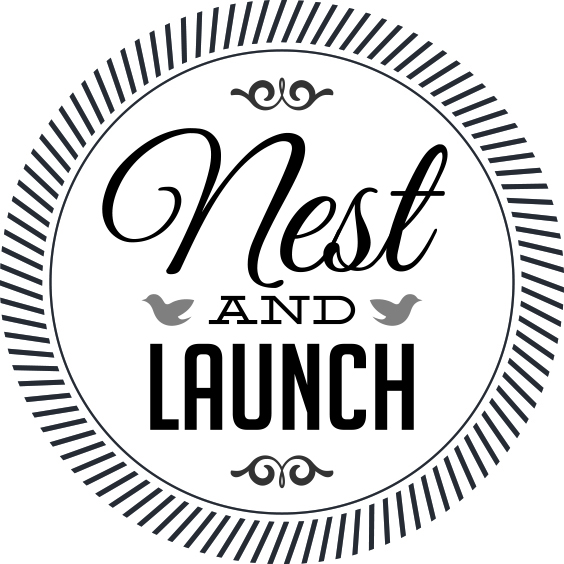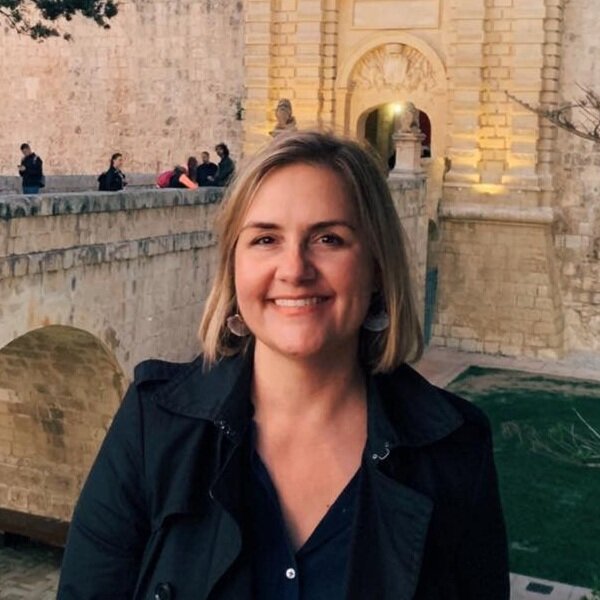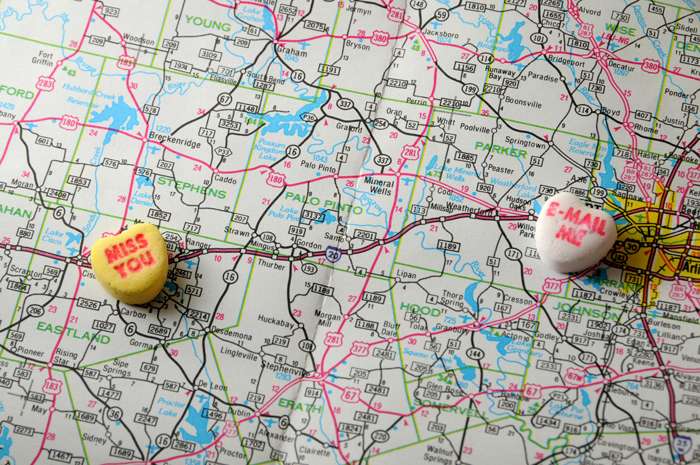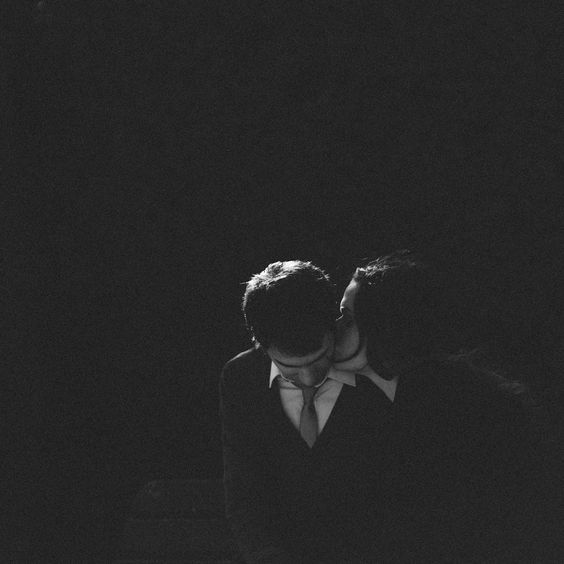The magic of a mother-daughter book group
/Right before Lauren started sixth grade, our neighborhood librarian, Sharon, pulled me aside and invited us to join a mother-daughter book group she was putting together for sixth grade girls and their moms. It turned out to be one of the best things we did together in those middle school years. When Maddy hit those same years, we joined in another Sharon-led, mother-daughter book group. Those hours each month, leaning in around round tables in the after-hours library, were honest and illuminating times for me and my girls.
It was such a lovely part of our mother-daughter relationship during those sometimes bumpy pre-teen and early teen years that I wanted to chat with Sharon again and see if I could share her with you. Enjoy this conversation with Sharon McCarrell, who graciously agreed to be interviewed about the magic of mother-daughter book groups and her insights on starting and running them.
What brought you to young adult (YA) fiction?
I am not sure why I love YA books as much as I do. I wasn’t a very happy adolescent, maybe that has something to do with it. Maybe I’m living it over and over again and trying to improve it after the fact, or trying at last to exorcise it. As a teenager I wasn’t bookish, I wasn’t particularly motivated academically, and although I always loved to read, my adolescence was much more marked by my passion for rock and roll music than by books. I pretty much hated adolescence, like a lot of people, and didn’t want to go back to it and think about it after I was finally free of it. And when I started buying YA books for the library, I wasn’t that engaged in the library’s YA collection. But I started reading some of the books, and something happened. I tapped into the “me” who was that adolescent, and I remembered how it felt. I started seeing how even as a middle-aged woman, some of the books reached me in a place I had put away and preferred not to remember. Maybe I’m trying to heal that girl. Besides, some of the books are just fun to read! I think I might have been hoping a book would touch an adolescent girl in some way that might make the whole thing just a little bit easier to get through.
How did you come to have the idea to start book groups? How long have you been doing them?
About 10 or 15 years ago I decided to really beef up the [YA] collection, in the “if you build it they will come” approach. And in an effort to try to engage more kids in reading them, the mother/daughter book group idea seemed like it would be fun. The book group has been going for about 12 years. [Sharon starts a new one every year with 6th graders and then keeps each group going until around 8th grade.]
One of the things I love about the books is that they are often stories that revolve around the same things middle school or adolescence revolves around: What does it mean to belong? What does it mean to be different? Can you be your true self? In fact, what does it meant to be yourself? What does it mean to go along? To refuse to go along? What does it mean to stand up for something? To make decisions for yourself? To speak up? To keep quiet? How can you be a friend? How can you rely on yourself? The stories often speak to these questions, even if they are wrapped up in a story about someone in another time, in another place, long ago or in a place that never existed, or a place and a time in the future.
Anyway, for whatever reason, the books started speaking to me. And I started to want to share them! I hoped that being in a “neutral” location like the library, rather than in someone’s house, would make it a bit less casual and maybe a bit more focused, and that having one “facilitator” might work better. It was a sheer stroke of luck. It’s been just amazing….unforgettable, really.
Why middle school girls?
When people ask me why I like middle school kids so much, I really want to laugh. The middle school kids I interact with are NOT a cross section of middle school! In the first place, the girls I recruit for my groups read so much that they don’t mind reading an extra book every month that they haven’t even chosen. They don’t mind coming to the library (not always every kid’s idea of the coolest place to hang around) in the evening, when they could be doing something else. They don’t mind hanging around there with their moms. They don’t mind talking about books in a group setting that is not school and is also not made up of people they might have chosen. There’s a little window of time when this moment occurs most happily. 6th and 7th grade seems perfect. Soon they will have too much homework. Soon there may be conflict with mom. These are extraordinary parameters…but then again, these are extraordinary girls. And they also have moms who are not so busy that they are willing to read the books too, in the time frame, and come prepared to talk about a book they might not have chosen. All I can say is…it’s magic.
Tell us some more about that magic. What’s special about spending that time together, discussing books and ideas?
Everything! The opportunity to hear the comparison of the point of view of a middle school girl in her understanding of the story with her mom’s is frequently amazing. You know how you can have the best conversations with your daughter in the car, when you are both looking forward, and not at each other? This is like that sometimes. Often the girls will say something that they think about what happened in the book and I see the mom’s face go “wow.” Sometimes the mom will say “when I was 13….” and I see the same look on the daughter’s face.
Yes! In my experience with two daughters participating at different times, the discussions become part book group, part therapy session! How do you lead discussions that help mothers and daughters navigate these transition years?
I often have conversations with the moms about the beauty of being able to talk about values or ideas in this non-direct way, when it’s a discussion about a character in a book, and what she might do or think, or the decisions she might make. No heavy “what would you do if” conversations, just “what do you think of what happened?” Some of the books have some hot button issues around the edges of the story that create an opportunity for a talk that is hard to figure out how to begin.
What do you think the girls and the mothers take away from these discussions?
"My hope is less that they enjoy talking about the books and more that they are laying down some empathy or human understanding--from the experience of talking with others about a person in a story or a connection that they might feel with or about a character--that they can bring to bear later on, in a real situation."
I don’t think I really have any understanding about what is the value of this whole thing for the girls, because they have a lot of this kind of thing at school. But I really understand the value of it for the moms, and for myself. It’s a little window into their world. The girls will sometimes bring up something that has happened at school or with a friend, and I can see them make connections from the books to real life. And in a town like this [a suburb of Boston], they have talked about books so much that they are pros at it. But my hope is less that they enjoy talking about the books and more that they are laying down some empathy or human understanding--from the experience of talking with others about a person in a story or a connection that they might feel with or about a character--that they can bring to bear later on, in a real situation. Mostly when I think about middle school, I just think, anything has value that gets you from this point to a place later, where you can look back on going through it and say, “whew.” Sometimes I think the books we read in the groups might be more valuable later, looking back, than they are when they are read by someone who is 12 or 13.
I hope to help create a place where they feel safe with what they think and what they feel, and I love watching it happen. I wish I could meet with these girls when they are older, and show them their younger selves, and see how it looks different at 16 or 18 than it did at 12.
Have the discussions changed over the years?
I’ve seen a change over the last few years, in some of the perspectives of the girls in these groups, in the same town. The girls seem to be more protected, more sheltered, more afraid of the world, and yet more unaware, than ten years ago. I sometimes hear someone in a group meeting say, “Oh, this couldn’t happen here.” And while of course they are right about plenty of the stories, it’s not right that in their sheltered worlds they have no friends dealing with divorce, with alcoholism, with domestic violence, with bullying.
But I love their fierceness and their certainty. And I love that the moms get to hear from this girl who hasn’t yet gone into the minefield of teenhood. And I love it that they are putting these stories away for later.
You do this at night, holding the groups after hours after working a full day at the library. What keeps you coming back and starting another one, year after year?
I’ve been blessed to know these girls at this moment of their lives. They leave the [neighborhood] library soon after middle school, and they mostly use the high school library and the bigger main library, and I often don’t see them again. But I remember this particular time of their lives, and it’s such an honor for me to see them and know them, and their moms, for this brief period of time. I am not so sure what they get out of it, but it’s amazing for me, and when I’m not doing it anymore I think I will miss this more than almost anything else about working in the same library for so many years.
Thank you, Sharon, for being one of our favorite mentors and fearless guides in navigating the terrain of those years. We miss you.
In case you're interested (or maybe considering starting a group of your own!), here are just a few of the books we read under Sharon's guidance:
Fever 1793 by Laurie Halse Anderson
Hope Was Here by Joan Bauer
A Mango Shaped
Space by Wendy Mass
Shiva's Fire by Suzanne Fisher Staples
Elsewhere by Gabrielle Zevin
Pictures of
Hollis Woods by Patricia Reilly Giff
Chasing Redbird by Sharon Creech
Down the Rabbit
Hole by Peter Abrahams
The Goose Girl by Shannon Hale
Firehorse by Diane Lee Wilson
Red Scarf Girl by Ji-li Jiang
Tangerine by Edward Bloor
Freak the Mighty by Rodman Philbrick
Uglies by Scott Westerfield
Silent to the
Bone by EL Konigsburg
Does My Head
Look Big in This? by Randa Abdel-Fattah
A Northern Light by Jennifer Donnelly

























